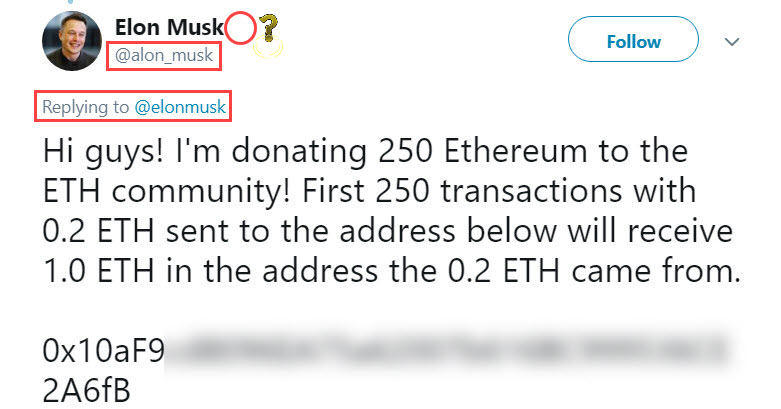Fraudsters do not stand still and are always looking for new ways to steal money. Unfortunately, the massive growth of cryptocurrency in recent years has created the perfect ground for it. According to Chainalysis, cryptocurrency crime in 2021 was a record year, with fraudsters stealing $14 billion worth of cryptocurrency this year alone. So if you are interested in cryptocurrency, it is essential to know all possible risks. Cryptocurrency scams and frauds may obtain different forms, so you should know what to expect.
Cryptocurrency investment scams
There are many types of crypto fraud. Below we will look most common ones, describe how they work, and tell you how to avoid them and what you should do if you encounter something like this. Here are the most common types of scams:
Fake websites
Sometimes scammers create fake cryptocurrency trading platforms or fake versions of official crypto wallets to deceive not very careful victims. These fake websites usually have similar but slightly different domain names from the sites they are trying to imitate. Because of their high similarity to legitimate sites, they are difficult to distinguish. Fake crypto sites work in one of two ways:
- As phishing pages: all the data you enter (your crypto wallet password and recovery phrase) and other financial information, once entered, fall into the hands of fraudsters.
- As straightforward theft: the site may initially allow you to withdraw a small amount of money. Once you gain trust, you can put more money into the website. However, when you later want to withdraw your money, the site will either close or reject the request. Alternatively, they can offer you to take part in a “giveaway”, which promises x100 returns – ones that you will never see, along with your initial investment.
Phishing scams
Crypto-phishing scams often target information related to online wallets. Scammers target the crypto wallet’s private keys, which are necessary to access its funds. This method is similar to other phishing attempts and is associated with the fake websites described above. Acting on a classic scheme, they send an email to lure recipients to a specially created website, asking them to enter secret key information. Once the hackers get this information, they steal the cryptocurrency in those wallets.
Pump and dump schemes
This refers to a particular coin or token that fraudsters promote through email newsletters or social networks such as Telegram, Twitter, Reddit or Discord. Not wanting to miss out, the traders hastily buy up the coins, inflating the price. After successfully growing the price, the scammers sell their assets, which leads to a crash as the value of the asset plummets. This can happen within seconds – and you can never foresee the moment.

Ponzi schemes
Ponzi schemes pay old investors at the expense of income from new investors. To attract new investors, cryptocurrency scammers lure new investors with income promices. It’s a scheme that works in circles because there are no legitimate incomes to pay off the promices; the profits come at the expense of new investors’ money. The main lure of the Ponzi scheme is the promise of huge profits with little risk. However, there are always risks with these investments and no guaranteed profits; they are short-lived. Some of them are conjoined with the aforementioned pump and dump schemes.
Fake apps
Another typical way scammers deceive cryptocurrency investors is through fake apps on Google Play. Although such apps are quickly detected and removed, they harm victims and siphon coins. Unfortunately, thousands of people manage to download fake cryptocurrency apps. Some of them may be spread on online forums and in Discord communities, pretending to be the in-dev tools, that are posted “for testing”. In fact, the sole thing that will be tested is the thickness of the victims’ wallets.
Fake celebrity endorsements
Crypto-fraudsters can impersonate celebrities, business people, and influencers, claiming their support to attract the attention of potential victims. Sometimes it involves selling phantom cryptocurrencies, which do not exist, to aspiring investors. These scams can be very sophisticated, including glossy websites and brochures showing support for celebrities like Elon Musk. Rarely, crooks manage to hack into the celebrities accounts and post scam offers from their name. Such actions can make hackers a solid fortune.

Giveaway scams
Sometimes scammers promise to multiply the cryptocurrency sent to them in a free giveaway. These are usually convincing messages that can create a sense of legitimacy and a sense of urgency. This supposed “once-in-a-lifetime” opportunity can encourage people to transfer funds in hopes of an instant return. Such scams usually involve some cheap tokens, and even the ones promoted in a pump and dump scheme – that does all scammers a big favor in money stealing.
Romance scams
Dating app scams are common, and crypto scams are no exception. These scams are relationship-related, but usually at a distance and exclusively online. It takes time for one party to gain the other party’s trust. Over time, one party begins to convince the other to buy or give money in cryptocurrency. After receiving the money, the scammer disappears. These scams are also called “pig butchering scams”.
Blackmail and extortion scams
Another dirty method used by scammers is blackmail. They send emails claiming to have records of adult websites visited by the user, or the footage from the camera of what the person was doing while browsing such pages. They also threaten to publish these records unless the victim shares their private keys or sends the scammer cryptocurrency.

Cloud mining scams
Cloud mining companies allow you to remotely rent your mining equipment for a fee and a share of the income you are supposed to get. In theory, this will enable people to mine remotely without buying expensive mining equipment. In practice, however, many cloud mining companies are fraudulent or inefficient. Everything boils down to you losing money or earning less than expected.
Fraudulent initial coin offerings (ICOs)
Initial coin offerings or ICOs are a good way for startup cryptocurrency companies to raise money from future users. Typically, customers are promised a discount on new cryptocurrencies in exchange for sending active cryptocurrencies such as ETC or another popular cryptocurrency. Unfortunately, several ICOs were fraudulent, and the criminals went to great lengths to deceive investors. For example, they rented fake offices and created high-quality marketing materials and even got support from well-known cryptoindustry organizations.
How to spot cryptocurrency scams
So, to spot crypto-fraud, you need to understand what the warning signs are that you should pay attention to, namely:
Promises of guaranteed returns: no financial investment can guarantee future profits. Investments can go up, can go down. So any crypto offer that guarantees you will make money is a red flag. Either do promises of the “insurance for your account”, “guaranteed recovery in case of money loss”. et cetera.
A poor or non-existent whitepaper: Every cryptocurrency must have a technical record because it is one of the most critical aspects of the initial coin offering. The technical document should explain how the cryptocurrency was developed and works. If the technical paper doesn’t make sense or doesn’t exist, it makes sense to think twice before dealing with it.
Excessive marketing: All companies advertise themselves. That’s fine. However, suppose the advertising is overly intrusive. There is a good chance that this is one of the ways crypto scammers attract people. It’s designed to reach as many people as possible in the shortest time to raise money quickly. If you feel that certain crypto offer seems to have a too obtrusive marketing, or it makes extravagant claims without backing them up, take your time to agree and do further research.
Unnamed team members: most investment firms can find out who the key people are. This usually means readily available biographies of the people who run the investments and an active social media presence. If this information is not available, be careful. That is not a 100% guarantee of a scam – Satoshi Nakamoto is a pseudonym as well – but should set you on alarm.
Team members that were spotted in earlier scams or failed projects: same as anonymous actors, guys who’ve ever got their hands dirty with frauds or failed start-ups should not be trusted. Even if the thing looks promising, and the management ensures you that everything is legit, that will not be a great idea to trust them with your money.
How to protect yourself from cryptocurrency scams
Many crypto scams are complicated because they are pretty convincing. However, here are a few steps you can take to protect yourself:
Protect your wallet: the wallet must necessarily have private keys. If a firm asks you for your keys to participate in an investment opportunity, it’s a scam. Do not give your wallet keys to anyone – same as you never give a key from your home to a stranger.
Keep an eye on your wallet app: if you doubt the wallet’s legitimacy, send a small amount to make sure. If you notice suspicious behavior when you update your wallet app, terminate the update and uninstall the app.
Invest only in what you understand: when you do not know how a particular cryptocurrency works, it is better to refrain from investing and study it further before deciding whether to invest.
Take your time: scammers often use strong pressure tactics to get you to invest your money quickly and thoughtlessly, sometimes promising bonuses or discounts if you invest right now. So take your time and research all the nuances before you invest.
Be suspicious of social media ads: crypto scammers often promote fraudulent schemes on social networks. They may use images of celebrities or disguise themselves as famous businessmen to create a sense of legitimacy or promise gifts and free money. Maintain skepticism when you see cryptocurrency opportunities advertised on social media and be diligent.
Ignore cold calls: when someone contacts you out of the blue to sell you a cryptocurrency investment opportunity, it’s a scam. It’s essential never to give out personal information or transfer money to someone who contacts you this way.
Only download apps from official platforms: unfortunately, fake apps can end up in the Google Play Store. Anyway, it is safer to download apps from these platforms than anywhere else – at least Google wipes the fraudulent apps time to time.
Please do your research: With popular cryptocurrencies, it’s easy. We know it’s not a scam, but if you haven’t heard of a particular cryptocurrency, you should research it first. See if there’s a white paper you can read, find out who launches it and how it works, and look for reviews and testimonials. Also, find a current and trustworthy list of fake cryptocurrencies.
Too good to be true: Suppose a company promises a guaranteed profit or multiplies your assets out of thin air. It’s probably a scam. If something seems too good to be accurate, it is.
Finally, as with any investment opportunity, the cardinal rule is never to invest money you can’t afford to lose. Even if you are not being scammed, cryptocurrency is unstable and speculative, so it is essential to understand all the risks.
What can I do if I fall victim to a crypto scam
Becoming a victim of cryptocurrency fraud can be very unpleasant. However, it is essential to act quickly, especially if you have made a payment or disclosed personal information. Contact your bank immediately if you have:
Cryptocurrency scammers often sell the data they receive to other criminals. Hence, it’s essential to change your usernames and passwords across the board as soon as possible to prevent further damage. When you are a victim of a crypto scam on social media, report it to tech support on the relevant social media platform. Then, you can report the fraud to the appropriate authority in your jurisdiction. For example, in the U.S., this would be the Federal Trade Commission. Other countries have their counterparts.

